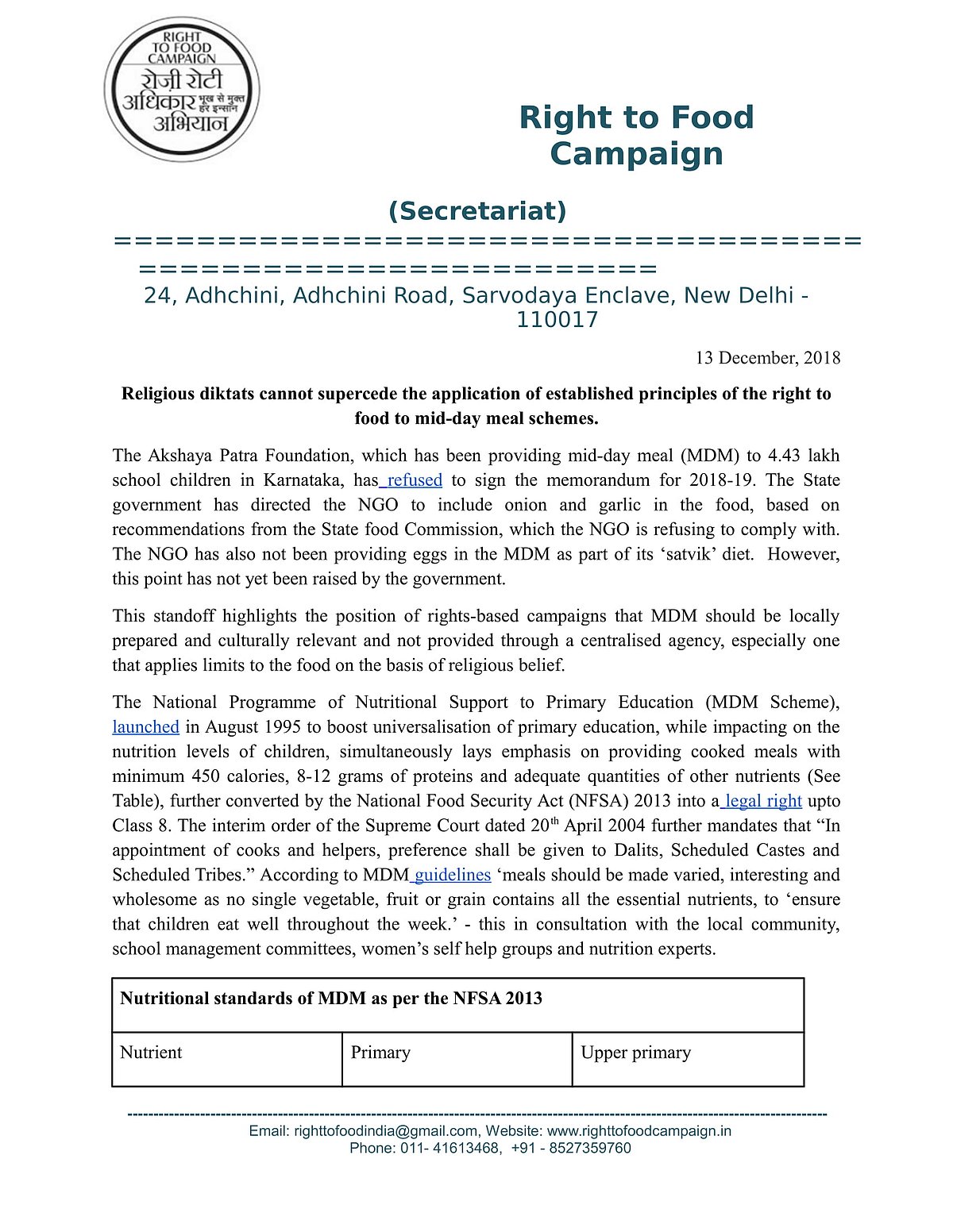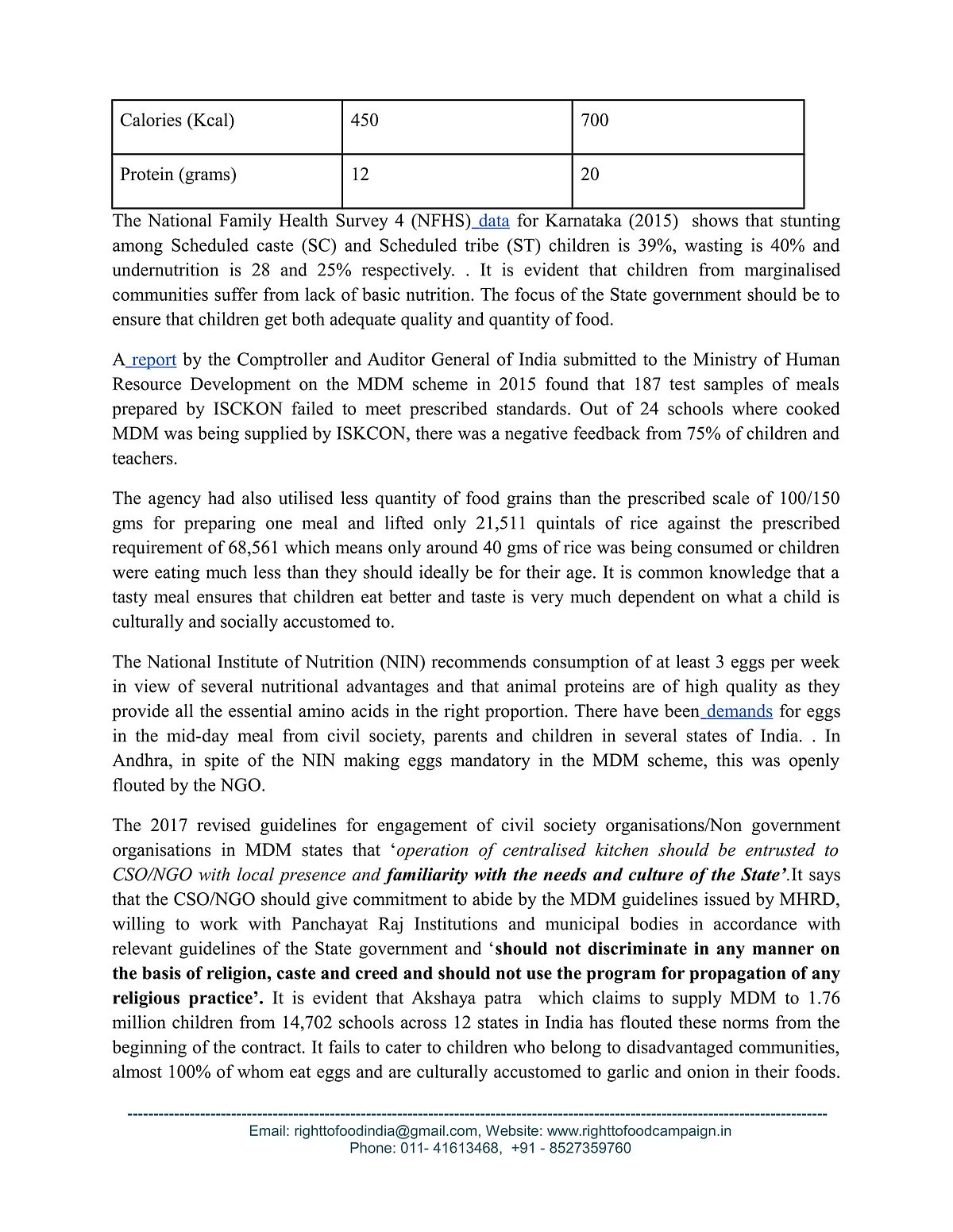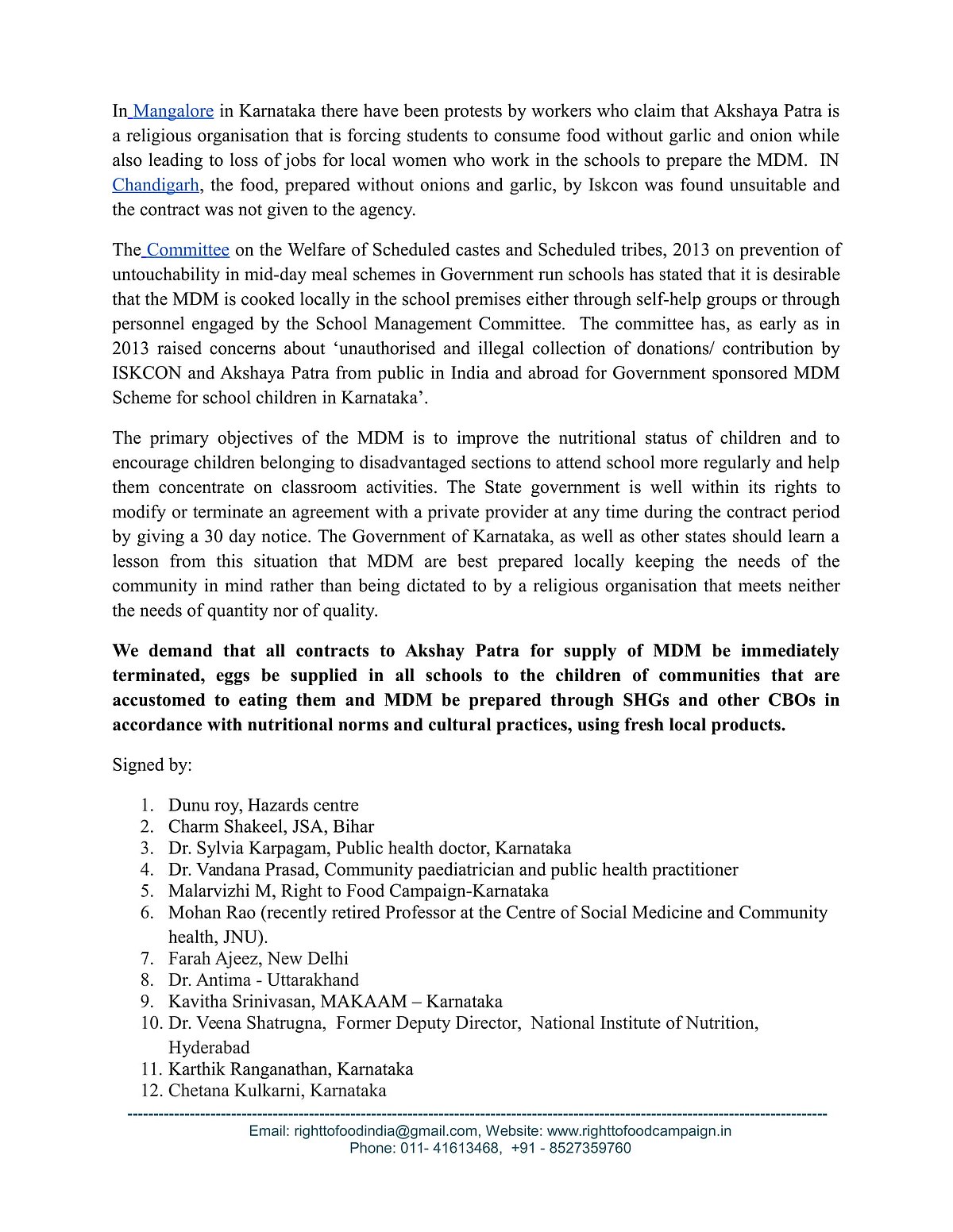ISCKON’s NGO refuses to follow Karnataka order to include onion, garlic in mid-day meals
Akshaya Patra, which claims to supply mid-day meals to 1.76 million children from 14,702 schools across 12 states in India, has flouted these norms from the beginning of its contract

The Akshaya Patra Foundation, which has been providing mid-day meals to 4.43 lakh school children in Karnataka, has refused to sign a memorandum for 2018-’19 following a directive by the state government to include onions and garlic in the food prepared for the meal, based on recommendations from the State Food Commission.
The foundation, an initiative of the International Society for Krishna Consciousness or ISKCON, has a religious prerogative of “advocating a lacto-vegetarian diet, strictly avoiding meat, fish and eggs” and considers onions and garlic in food as “lower modes of nature which inhibit spiritual advancement”.
Akshaya Patra, which claims to supply mid-day meals to 1.76 million children from 14,702 schools across 12 states in India, has flouted these norms from the beginning of its contract by failing to cater to children from disadvantaged communities, almost all of whom eat eggs and are culturally accustomed to garlic and onion in food.
Key takeaways from the report:
- Parents and children in many states have demanded eggs in the mid-day meal provided by Akshaya Patra. The National Institute of Nutrition recommends consumption of at least three eggs per week for children. In Rajasthan, Akshaya Patra claimed that eggs are “not permissible” in the meal.
- Any religious organisation has the right to promote or oppose certain food beliefs. In this instance, these beliefs contradict a secular government’s mandate as well as guidelines by National Institute of Nutrition and the Indian Academy of Pediatrics.
- This has also affected on food rights of the majority of children attending government schools who are often from marginalised communities and suffer from malnutrition.
- Campaigns have said that mid-day meals should be locally prepared, culturally relevant and should not provided through a centralised agency, especially one that applies religious sanctions on food.
- According to mid-day meal scheme guidelines “meals should be made varied, interesting and wholesome as no single vegetable, fruit or grain contains all the essential nutrients, to “ensure that children eat well throughout the week”.
- In Mangalore in Karnataka, mid-day meal scheme workers have protested against Akshaya Patra supplying the meal because of the exclusion of garlic and onion. The Chandigarh education department found food made by ISKCON without onions and garlic was unpalatable for students and the mid-day meal contract was not given to the organisation.
Flouting guidelines
A report by the Comptroller and Auditor General of India submitted to the Ministry of Human Resource Development in 2015 found that 187 test samples of meals prepared by ISCKON failed to meet prescribed standards, with negative feedback from 75% children and teachers. ISKCON had also utilised lower quantities of food grains than the prescribed 100-150 grams for one meal. Children eating these meals were, on an average, consuming only around 40 grams – far less than what is ideal for their age. It is common knowledge that a tasty meal, which is very much dependent on what a child is culturally and socially accustomed to, ensures that children eat better.
Keeping in mind the mandate of the scheme, the government is well within its rights to terminate its contract with Akshaya Patra by giving a 30 days notice. Eggs should be mandatorily supplied to children of communities that are accustomed to eating them, and mid-day meals should be prepared locally in accordance with nutritional norms and cultural preferences rather than the diktats of a religious organisation. Food is a basic human need that fulfils many social functions beyond nutrition. The current top-down approach to decisions made for what food communities should receive from supplementary programmes is both paternalistic and creates major bottlenecks in the success of these programmes.
Follow us on: Facebook, Twitter, Google News, Instagram
Join our official telegram channel (@nationalherald) and stay updated with the latest headlines



